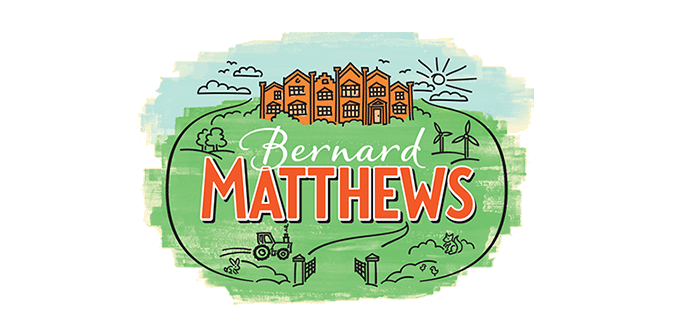The late Bernard Matthews built a phenomenal brand that eventually faltered as consumers’ tastes changed. Now Ranjit Boparan has bought the business, where does the turkey brand go from here?
At the height of his success, Bernard Matthews was worth £300 million and owned among other trinkets of wealth, a Cessna Citation 11 private jet.
When he died, aged 80 in 2010, he was still a very wealthy man. But he had also spent the last decade of his life watching the business he built from scratch brought nearly to its knees. Heavily indebted and slow to react to changing trends, Matthews’ business was a tainted brand.
Jamie Oliver’s televised disgust about pork-fat laden Turkey Twizzlers being served in schools was just one of the nails in the coffin that turned increasing numbers of families off Bernard Matthews products. The 2007 bird flu outbreak was also disastrous, wiping out 160,000 birds on his farms, and landing another blow to the firm’s reputation.
Last autumn, Ranjit Borparan, the ‘chicken king’ bought the business for an undisclosed amount from private equity firm Rutland Partners, which had stepped in with much needed cash in 2013.
Borparan has already cut costs, ceased chicken production at the Great Witchingham headquarters in Norfolk, and 100 workers have lost their jobs.
But how did it ever get to this?
Matthews’ rags to riches story is worth the telling. Born to a car mechanic father and housewife mother, Matthews had a working-class upbringing in Norfolk during the war years and left school with no qualifications.
While working as a trainee livestock auctioneer in 1946, he bought on impulse 20 turkey hatchlings and a paraffin oil incubator. It was his first taste of entrepreneurialism and the seeds of his business were sown. In the early ‘50s, after completing his national service stint, Matthews bought the dilapidated Great Witchingham Hall in Norfolk for £3,000. He set about filling the once-grand halls with turkeys, while Matthews and his wife lived in two unheated rooms.
The rest was history. Through the second half of the twentieth century, Matthews built his turkey empire, creating a hugely successful and loved brand. He pioneered processed meat products such as Kievs, Crispy Crumb turkey steaks, Golden Drummers, and the famous Turkey Dinosaurs, introducing variety and interest to the nation’s diets at an affordable price throughout the ‘70s and ‘80s.
And that would be a great place to finish the story. But since the turn of the millennium, there have been more twists and turns in this iconic business’s story than in its first 50 years.
The Twizzlers fiasco alone cost the business £13 million in operating profits, after the firm decided to dump the product. Then another tidal wave in the form of bird flu in 2007. And a further battering ram: newspaper revelations that this national treasure of a brand owned farms in Germany and Hungary. Deception! Deceit! This was supposed to be a Norfolk brand!
If only one of these three shocks had occurred maybe the firm could have withstood the pressure. But combined, the effect was enough to wipe out consumer trust, the only asset a brand really has.
Its sale to private equity firm Rutland Partners in 2013 would surely have been a bitter blow to Matthews, were he around to see it. After all, in 2000 he fought to fend off a takeover bid from US firm Sara Lee, going so far as buy back the firm from the stock market.
But according to Rutland Partners, it was only their intervention saved the business from insolvency. “In August 2013 Bernard Matthews was in financial difficulty and already exposed to the level of £55 million debt with its existing lenders,” said the private equity firm. “Furthermore, the business was on stop with a number of key suppliers. Without further investment, the business would very likely have entered into insolvency and the pension fund may well have passed to the Pension Protection Fund at that stage.”
But burdened with debt, Bernard Matthews was not an easy turnaround business, and Rutland Partners decided it had done all it could when last year it was once again put up for sale.
“Despite ongoing investment the business did not grow as expected within the UK grocery market and was seriously compromised in 2015 and 2016 by substantial reductions in the price of turkey meat in global commodity markets,” said Rutland Partners. “This significant financial pressure resulted in negative cash flows, with the business making a loss of £26.9m for the year to 30 June 2016.”
Retailers became hugely concerned through the autumn of 2016 about whether the business could deliver on Christmas. It was then that 2 Sisters owner Ranjit Boparan stepped up to the plate ensuring turkeys were in stores for the crucial December period.
Since then, inevitable restructuring has come into play. Cost-cutting and job losses are never a welcome outcome, especially when it affects a once-great national brand. Clearly, this alone won’t be enough to restore its reputation.
It’s clear Boparan is a hugely talented entrepreneur, perhaps a little like Matthews himself. Time will tell whether Borparan will be able to work magic on the brand and turn it back into a national institution rather than a throwback to another age.


